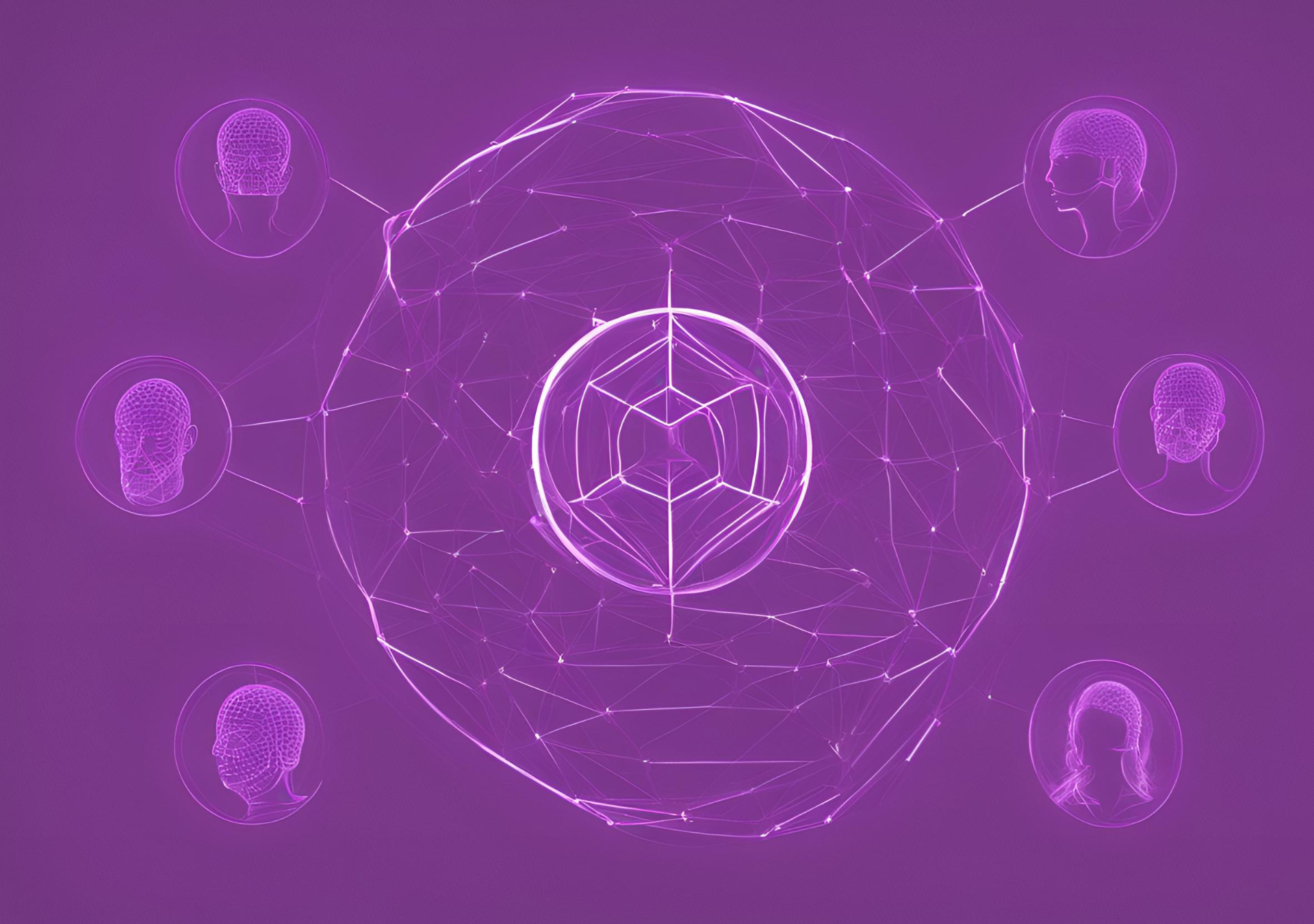Did you know that every day, we generate over 2.5 quintillion bytes of data online? That’s equivalent to the content of 50 million DVDs. No wonder it’s hard to keep track of our digital footprints. But what’s even more alarming is that most of this data is controlled by a handful of giant corporations and governments, leaving us vulnerable to privacy breaches and identity theft.
What if you could take back control of your digital identity and keep your personal information safe from prying eyes? This is where self-sovereign identity (SSI) comes in – an innovative approach that puts you in the driver’s seat of your digital life.
In this article, we’ll explore the concept of sovereign identity and how it’s empowering users to reclaim their digital autonomy. We’ll also discover how SSI is leveraging blockchain technology and decentralized networks to create a new kind of digital identity – one that’s secure, private, and totally yours. So if you’re ready to take back control of your online identity and become the master of your digital experience, keep reading.
You’re in Control: Sharing Data on Your Terms
Traditional online interactions often resemble a one-way street when it comes to your data. You provide a platform with tons of personal details to create an account, most of which might not be essential for the service itself. Sovereign Identity (SSI) flips this script, placing you at the helm of your data. You no longer have to share your entire bio when creating a new account. You can choose specific Verifiable details to share. One of the characteristics of SSI that makes this possible is called: selective disclosure.
Selective disclosure empowers you to share only the data necessary for a specific interaction. Need to prove you’re over 21 to enter a website? No need to reveal your entire birthdate. Your SSI wallet can provide a cryptographically verifiable credential proving you meet the age requirement, without disclosing any other details. Renting an apartment? You can share a credential showcasing your income verification from your employer, without exposing sensitive bank account information.
This granular control goes beyond simple data privacy. Consider the endless cycle of creating new accounts for every service you use. With SSI, you can leverage existing verified credentials across platforms. Renting a car? The rental agency can verify your driver’s license through a recognized decentralized identifier attached to your submitted credential, eliminating the need to re-upload documents you’ve already verified elsewhere.
The magic behind selective disclosure lies in cryptography. Your SSI wallet stores credentials – digitally signed statements issued by trusted entities like banks, universities, or governments. These credentials contain specific attributes about you, like your age, employment status, or educational qualifications. When requested, you can share a specific credential with a verifier (like a website or service). Crucially, you don’t share the raw data itself. Instead, cryptographic proofs, also known as decentralized identifiers, allow the verifier to confirm the validity of the credential without ever seeing the underlying information.
Think of it like a passport control officer verifying your identity based on a special code embedded in the chip of your passport, without needing to see your entire birth certificate or travel history. This ensures the verifier gets the information they need, while you retain control over everything else.
Selective disclosure is a cornerstone of SSI, putting you back in the driver’s seat of your digital identity. You decide what information to share, with whom, and for what purpose. This empowers a future where online interactions are more secure, efficient, and respectful of your privacy.
Sovereign Identity and Global Identity
While traditional digital identities rely on centralized authorities like governments or corporations, Sovereign Identity (SSI) offers a better approach to managing digital identity. It empowers individuals, including the unbanked and underbanked, to control their data and participate more fully in the digital world.
Challenges of Digital Identity for the Unbanked:
Millions globally lack access to traditional forms of identification like passports or bank accounts. This exclusion creates significant limitations. Without a verified digital identity, they may be denied essential services like online banking, healthcare access, or even starting a business. This digital divide deepens existing inequalities.
SSI: A Bridge to Inclusion
SSI tackles these challenges by placing individuals at the centre of their digital identity. Instead of relying on a single entity, SSI utilizes a decentralized system. Individuals hold a unique digital identifier (DID) that acts like a virtual key. This DID allows them to store and manage their credentials, such as educational qualifications or proof of residence, securely on their own devices.
Empowering Individuals without Regular ID
With SSI solutions, individuals can share specific credentials with service providers when needed, without having a regular means of identity like a national ID. This is because SSI allows for alternative verification methods beyond traditional documents. Community leaders or NGOs can issue recognized credentials that can be used to access basic services in a community, opening doors for the unbanked and underbanked.
A Global Identity Framework
SSI’s potential extends beyond our national borders. Standardized SSI frameworks could enable seamless information exchange across countries. This means that with SSI, individuals can prove their professional qualifications or educational background anywhere, regardless of where the documents were issued. This interoperability would foster global mobility and economic opportunities, particularly for those who have previously faced limitations due to their local means of identification.
While the development of global SSI standards is still ongoing, the potential to bridge the digital divide and empower individuals with control over their data is undeniable. SSI holds the key to a more inclusive and secure digital future for all
Sovereign identity (SSI) and Data Monetization
In today’s digital economy, data has become a valuable asset for businesses and individuals alike. The ability to collect, analyze, and monetize data has created new revenue streams and opportunities for growth. However, this has also raised concerns about data privacy and security. Sovereign Identity (SSI) offers a solution to this problem by enabling secure, consensual, and transparent data sharing, giving individuals control over their data and ensuring that their privacy is respected.
Data monetization refers to the process of generating revenue from data by selling it to third parties, such as data brokers and marketplaces. These entities then use this data to create targeted advertising campaigns, conduct market research, and develop new products and services. However, this process often comes at the expense of individual privacy and security, as individuals are often unaware of how their data is being used and shared.
Sovereign Identity changes this dynamic by enabling individuals to control their data and decide how it is used. With Sovereign Identity, individuals can create a secure digital identity that allows them to manage their data and share it with third parties on their terms. This means that they can choose to share their data with certain companies or organizations while denying access to others.
Sovereign Identity (SSI) utilizes blockchain technology and decentralized identity management systems to ensure that data is secure, transparent, and consensual. This means that individuals have full control over their data, and can track how it is being used and shared. Additionally, Sovereign Identity enables individuals to receive compensation for their data, ensuring that they benefit from its value.
For data brokers and marketplaces, Sovereign Identity offers a new way to collect and analyze data while respecting individual privacy and security. By using Sovereign Identity, these entities can access data that is voluntarily shared by individuals, rather than collecting it without their knowledge or consent.
This not only ensures compliance with data protection regulations but also builds trust with customers and users. As the digital economy continues to evolve, Sovereign Identity will play an increasingly important role in shaping the future of data monetization.
Building the Future of SSI: Addressing Key Challenges
SSI is currently in its early adoption phase, with various pilot projects and initiatives underway worldwide. Governments, organizations, and individuals are exploring SSI’s potential to transform identity management. Several countries are piloting SSI initiatives. Estonia, a frontrunner in digital identity, is exploring SSI for e-government services, while India is testing it for academic credentials.
Airlines are looking at SSI for secure and streamlined passenger onboarding, and healthcare providers are exploring its potential for managing patient medical records. These initiatives demonstrate the real-world applicability of SSI, paving the way for broader adoption.
Key Challenges
User Education and Awareness: Many individuals are still unfamiliar with SSI’s benefits and how it differs from traditional identity management systems. Educating individuals about the advantages of owning and controlling their data is crucial for widespread adoption. This can involve clear communication from government agencies, industry leaders, and technology providers.
For example, the city of Barcelona’s SSI-based identity management system, IdentiCAT, offers user-friendly resources and education to its residents. This includes workshops, online tutorials, and community outreach programs to empower users with the knowledge they need to take control of their digital identity.
Standardization and Interoperability: Different SSI ecosystems are emerging, each with its own set of standards. This lack of uniformity can create hurdles for data portability and interoperability. Industry leaders and stakeholders must collaborate to establish common standards and protocols that will ensure seamless data exchange across various platforms.
Regulatory Frameworks: As a new technology, SSI requires a legal framework that promotes secure and responsible data usage. These frameworks should address user privacy, data protection, and potential misuse scenarios. Collaboration between governments, technology developers, and privacy experts is vital in establishing these frameworks.
Privacy and Security: SSI systems must prioritize user privacy and security, implementing robust measures to protect against data breaches and cyber threats. Developers are working to ensure that SSI systems are secure and private by design. This includes implementing end-to-end encryption, secure authentication protocols, and regular security audits to ensure the integrity of user data.
Scalability and Infrastructure: Supporting a large-scale SSI ecosystem requires a robust infrastructure that can handle millions of users and transactions efficiently. Scaling current solutions while maintaining security is a complex task.
Despite these challenges, the potential of SSI is undeniable. It offers a future where individuals have complete control over their digital identity, reducing fraud, simplifying online interactions, and empowering individuals in the digital world. As the technology matures and these challenges are addressed, SSI has the potential to reshape how we interact online, ushering in a new era of privacy and control.
FAQs
What is Sovereign Identity, and how does it utilize blockchain technology for decentralized identity management?
Sovereign Identity refers to the concept of individuals having full control over their digital identity and data. Blockchain technology is used to build decentralized identity solutions, which enable individual data control by providing a secure and transparent way to manage and share identity data.
How do blockchain wallets support Sovereign Identity and decentralized identity management?
Blockchain wallets allow individuals to store and manage their digital identity and data securely. Some are built as Super wallets to serve as a decentralized identity management tool, enabling individuals to share their identity data with third parties while maintaining control and privacy.
What role do crypto tokens play in Sovereign Identity, and how are they used for incentivization and identity verification?
Crypto tokens are digital assets issued on a blockchain, representing value or utility. In the context of Sovereign Identity, tokens can be used to incentivize individuals to share their data or participate in decentralized identity ecosystems. Some tokens represent verifiable credentials which can be used for identity verification, enabling individuals to prove their identity without revealing sensitive information.
How does decentralized identity on the blockchain work, and what are its benefits for identity security and privacy?
Decentralized identity on the blockchain utilizes blockchain technology to create a secure and transparent identity management system. This system enables individuals to control their digital identity and data, sharing it with third parties only when desired. Benefits include enhanced privacy, security, and control over personal data, as well as reduced risk of identity fraud and data breaches.
How do blockchain wallet development companies contribute to the growth of Sovereign Identity and decentralized identity management?
Blockchain wallet development companies create decentralized identity management tools, such as blockchain wallets, that enable individuals to control their digital identity and data. These wallets provide a secure and transparent way to manage and share identity data, supporting the adoption of Sovereign Identity and decentralized identity management.
How do non-custodial decentralized wallets support the principles of Sovereign Identity and decentralized identity management?
A: Non-custodial decentralized wallets allow individuals to have full control over their digital identity and data, without relying on intermediaries or centralized authorities. This aligns with the principles of Sovereign Identity, which prioritizes individual control and privacy, and enables individuals to manage their identity data securely and transparently.





